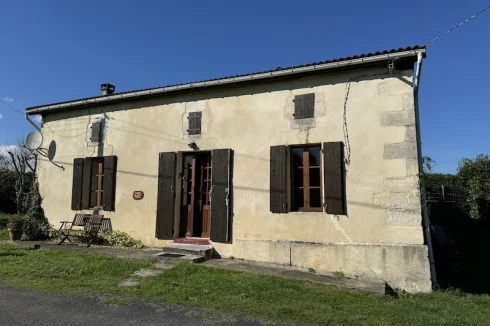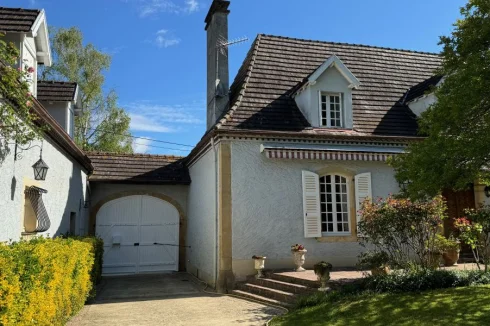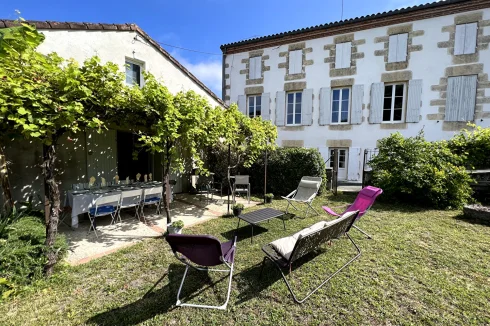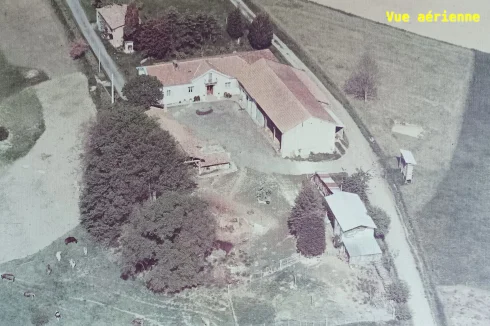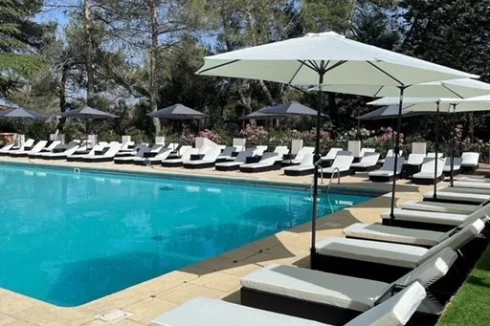French Farmers and EU Agricultural Subsidies
Tuesday 16 February 2010
France receives around €11 billion each year from the EU in agricultural support, but very little of it actually goes to those who do the farming.
There are a little over 500,000 recipients of EU farming subsidies in France, but over 80% of the funds actually goes to large industrial food processing businesses and charitable organisations.
In the list of beneficiaries for 2008, recently released by the French government, no independent farmer is listed amongst the top 20 recipients.
The largest recipient is the chicken production conglomerate Doux, who received a whopping €62.8 million in aid between October 2007 and October 2008. In the year 2008 the group had a turnover of nearly €2 billion.
According to the radical small famers group, the Confédération paysanne et exploitant agricole, this turnover has been achieved mainly through the acquisition of smaller competitors, all who would have been in receipt of the subsidies, which are now paid to the holding group.
Most of the subsidies were paid to the group to maintain their competitive position in the export market, by compensating the company for the lower prices they are obliged to sell into this market.
France is under strong competitive pressure from countries outside of Europe in the export of chickens, and this subsidy is considered to be important for the strategic development of agriculture in France and Europe.
The same principle applies to the subsidies received by a number of large cereal and sugar producers and wholesale traders on the list.
France is the leading producer of cereal crops and sugar in Europe and is also the largest recipient of agricultural support.
Other large industrial groups who head up the table are the dairy products group Lactilis, the luxury brands group LVMH, and the suger producers Tereos and Sucrière de la Réunion.
There are also a number of large humanitarian associations on the list of beneficiaries, such as Fédération des Banques Alimentaires (€22.5 million), Secours Populaire (€15.5 million) and Restaurants du Coeur (€13.7 million).
These associations, who distribute food and meals to the needy, receive assistance through the EU programme, Programme européen d'aide aux plus démunis (PEAD).
The following table shows the top ten recipients, with amounts that have been rounded to the nearest million.
| Top Ten Beneficiaries | ||
| Beneficiary | Activity | Amount |
| Doux | Chicken Producer | €63m |
| Saint Louis Sucre | Sugar Producer | €52m |
| Comité Régional pour la Reconversion Qualitative Différée Languedoc-Roussillon | Wine Producers | €38m |
| Tereos | Sugar Producer | €26m |
| Sucrière de la Réunion | Sugar Producer | €26m |
| Fédération des Banques Alimentaires | Charity | €23m |
| Tilly Sabco | Chicken Producer | €20m |
| Eurosugar | Sugar Marketing | €20m |
| France Luzerne | Commodity Trading | €18m |
| Sucre et denrées SA Sucden | Commodity Trading | €17m |
The amounts to the farmers themselves is substantially inferior to the agri-industrial groups.
Around 300,000 farmers received an average of €20,000 in 2008, of whom 30% received less than €5000.
The figures for all farmers in France are now publicly available, an obligation imposed on all EU members by the European Commission.
The French government have set up a dedicated website for this purpose, where you can find out just how much your neighbouring farmer receives each year from the EU.
By simply entering the name of the commune you can, in theory, find out all the recipients of aid in your commune!
However, the information cannot always be obtained by simply typing in the surname of the farmer, as the aid is normally paid in the name of the company through which they run the business.
Likewise, where the farmer as part of a cooperative, then you may not be able to find out how much each member of the cooperative has received, as only the total to the holding business will be shown.
CAP Reform
Of course, the use of export based subsidies used by the EU does little for the average small farmer who does not sell into the export market, one of the main reasons why the Confédération paysanne of small farmers rages against the current common agricultural policy.
Two thirds of the EU agricultural budget of €50 million has no link with the level of production or the price of crops in the market place.
‘It is all very well for farmers to demand 'price not subsidies' – but when the prices are high, they still obtain both’, argues Nicolas-Jean Brehon, a leading French agricultural economist.
Indeed, public opinion in France is increasingly critical about the level of subsidies paid out irrespective of the method of production. ‘In one generation, ‘le paysan nourricier est devenu l'agriculteur pollueur’, claims Nicolas-Jean Brehon.
The common argicultural policy is due for a major overhaul in 2013, and France has been busy trying to ensure that as far as possible a strong system of agricultural support is maintained after this date.
It appears to be achieving some momentum with this objective, for in a recent statement issued by 22 of the 27 members of the EU, the maintenance of such a policy is advocated by them.
The UK, Sweden and Denmark, countries who wish to reduce the level of agricultural support in the EU, are not members of this group, to which they were not invited.
Thank you for showing an interest in our News section.
Our News section is no longer being published although our catalogue of articles remains in place.
If you found our News useful, please have a look at France Insider, our subscription based News service with in-depth analysis, or our authoritative Guides to France.
If you require advice and assistance with the purchase of French property and moving to France, then take a look at the France Insider Property Clinic.

